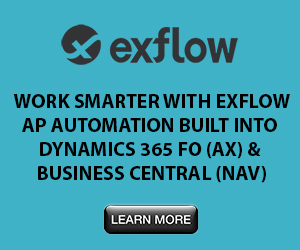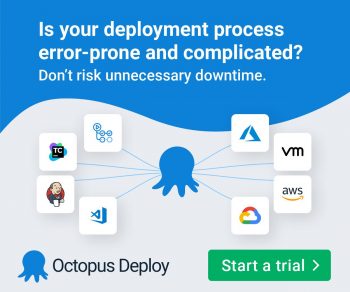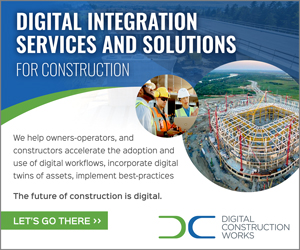Technology utilization in nonprofit organizations is increasingly prevalent and transformative, mirroring industry trends. Nonprofits are leveraging technology to revolutionize their communication methods and optimize mission fulfillment, achieving higher efficiency and effectiveness than ever before. As I ventured into the nonprofit sector quickly realized that the key to success lies in establishing and nurturing robust connections with donors, volunteers, stakeholders, and beneficiaries. In this regard, the significance of Customer Relationship Management (CRM) technology becomes paramount as one of the primary tools for nonprofits.
CRM Differs Between Nonprofit and Corporate Enterprises
CRM empowers nonprofits to effectively manage their interactions, streamline operations, and maximize their impact. Drawing from experience in the commercial world, I have observed both similarities and significant differences in the utilization of CRM between enterprises and nonprofits. From donor, volunteer, and stakeholder management and fundraising optimization to personalized communication and impact measurement, CRM plays a vital role in helping nonprofits cultivate long-lasting relationships, drive engagement, and achieve their missions efficiently and effectively. With its transformative capabilities, CRM is a cornerstone technology enabling nonprofits to thrive in an increasingly competitive and interconnected world.
Commercial CRM systems are typically designed to help businesses sell more products or services. They often focus on features such as lead generation, sales forecasting, and customer support. On the other hand, nonprofit CRM systems are typically designed to help nonprofits raise more money and volunteers and manage their programs and relationships with those they support. They often focus on donor, volunteer, program client, and event management features.
Key Differences to Note
- Purpose: Commercial CRM is primarily designed to manage customer relationships for sales, marketing, and customer service purposes, focusing on driving revenue generation and business growth. In contrast, nonprofit CRM is tailored to the unique requirements of nonprofit organizations, with a focus on donor management, program management, volunteer coordination, fundraising optimization, program impact measurement, and constituent engagement for social good.
- Functionality: Commercial CRM often includes features such as lead management, sales forecasting, pipeline tracking, and order management. Nonprofit CRM incorporates functionalities specific to the nonprofit sector, such as donor management, grant management, volunteer tracking, event management, program management, and campaign management. It enables nonprofits to effectively engage with donors, manage fundraising efforts, and measure program outcomes.
- Customization: Nonprofit CRM solutions are often customizable to align with the specific needs of nonprofit organizations. They provide flexibility to track and manage donations, grants, and donor and program relationships based on nonprofits’ unique fundraising and reporting requirements. Commercial CRM may offer customization options for sales processes, lead qualification, and marketing campaigns.
- Pricing Models: Nonprofit CRM solutions may offer pricing structures tailored to the budget limitations of nonprofits, including discounted or special pricing for nonprofit organizations. Commercial CRM typically follows standard pricing models based on user licenses, feature tiers, or usage levels.
- Reporting and Compliance: Nonprofit CRM systems often include reporting capabilities specific to nonprofit financial reporting, compliance with regulations such as tax-deductible donations, and grant reporting requirements. Commercial CRM may focus more on sales and marketing analytics and reporting.
Selecting the Right CRM
By understanding the differences between commercial and nonprofit CRM, nonprofits can choose the right CRM platform that aligns with their unique needs and goals. It’s important to consider the steps listed below when selecting a nonprofit CRM platform.
- Define specific requirements: Clearly define your nonprofit’s specific requirements, such as your organization’s size, scope of operations, and target audience. Next, identify the key functionalities you need from a CRM system: donor management, volunteer coordination, fundraising optimization, program management, impact measurement, and constituent engagement for social good.
- Prioritize user experience: Prioritize platforms with a user-friendly interface and involve potential users in the evaluation process to ensure the usability, intuitiveness, and accessibility of the platform. User experience plays a crucial role in successful CRM adoption.
- Assess integration capabilities: Ensure the CRM platform seamlessly integrates with other essential tools such as email marketing, fundraising software, and event management systems to avoid fragmented data management and inefficient processes.
- Don’t neglect scalability: Select a CRM platform that can scale with your organization. Consider factors such as the number of users, data volume, and potential expansion of programs and services to ensure the CRM platform can accommodate future needs.
- Assess support and training: Adequate training and ongoing support are critical for successful CRM implementation. Ensure the vendor provides comprehensive training materials, documentation, and responsive customer support to avoid hindering user adoption and limiting the platform’s potential.
Budget considerations should be taken into account, but prioritize the CRM platform’s ability to meet an organization’s specific needs over price or vendor popularity.
Benefits of Choosing the Right CRM
In the world of nonprofits, selecting the right CRM platform is a critical decision that can significantly impact operations and success. By implementing an effective CRM system, nonprofits can harness the power of data and personalization to build strong relationships with their donors, volunteers, stakeholders, and those they serve. The CRM platform serves as a centralized hub for managing donor information, tracking interactions, and understanding engagement patterns. This valuable data can then be used to personalize communication strategies, tailor fundraising appeals, and create targeted campaigns that resonate with the intended audience. Additionally, a well-chosen CRM platform streamlines and automates various operational tasks, such as donation management, event registration, and volunteer coordination, saving valuable time and resources. It also enables nonprofits to track and measure their program impact, providing insights for improvement and demonstrating effectiveness to stakeholders. With limited budgets, nonprofits can benefit from cost-effective CRM solutions that offer specialized features designed specifically for their needs. Overall, embracing the right CRM platform empowers nonprofits to operate efficiently, engage effectively, and make a lasting impact in their communities.

















